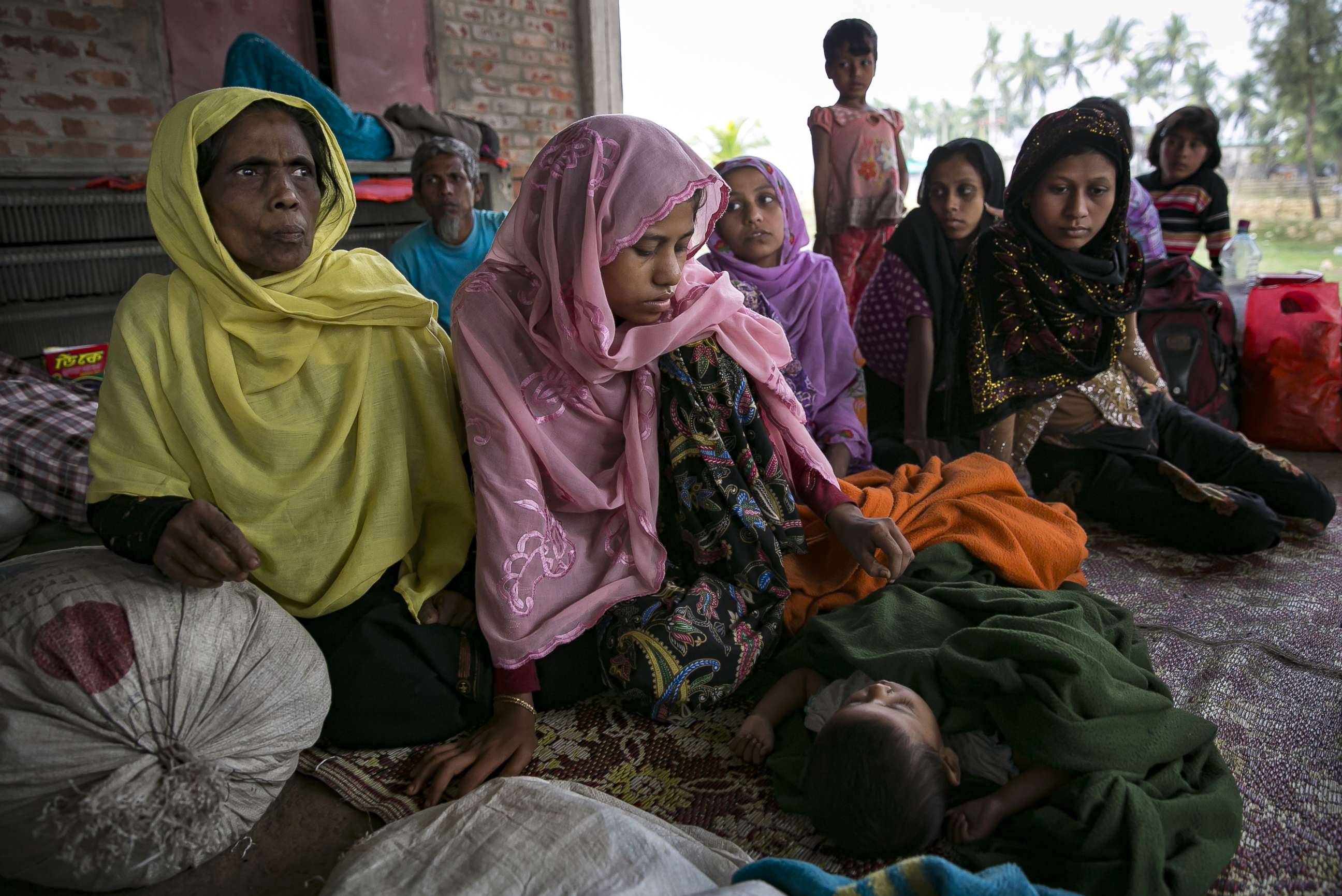Trump admits less than quarter of proposed refugees at six-month mark
After six months, 10,548 refugees have been admitted in FY 2018.
Halfway through the fiscal year, the Trump administration has admitted less than a quarter of the 45,000 refugees it set as a cap -- already the lowest ceiling in the program's 43-year history -- with only 10,548 refugees admitted since October 1, 2017.
For Trump, who has maligned refugees and blamed immigrants for violence in the U.S., it is the latest sign of how he has fundamentally changed immigration to the U.S. by limiting who is allowed in the name of national security.
The administration says the lower numbers are due to enhanced screening and urged not reading too much into them at this point, but critics say it is a sign of the White House's efforts to block "the most vulnerable" from entering the U.S.
"It is too early to determine what final FY 2018 refugee admission numbers will be," a State Department spokesperson told ABC News in a statement. "Additional vetting procedures are enabling departments and agencies to more thoroughly review applicants to identify threats to public safety and national security."
It is unclear whether the administration is committed to reaching that ceiling. When the cap was announced in September, a U.S. official who briefed reporters said, "I state unequivocally that that’s not our goal, to slow-roll it, and we have every plan to process as many refugees as we can under this ceiling."
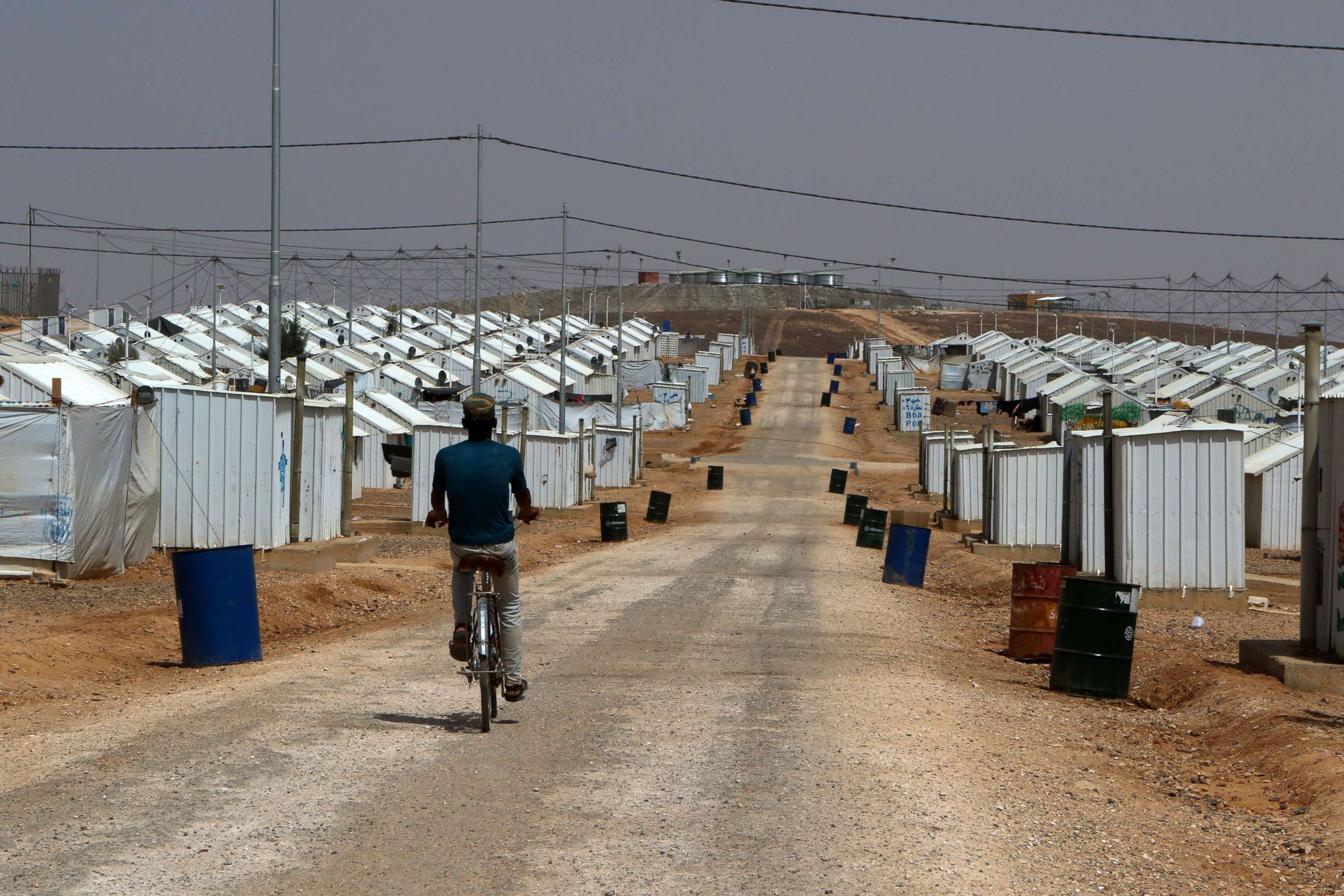
But the spokesperson told ABC News Friday, "The refugee admissions ceiling of 45,000 is not a quota but represents an upper limit of refugee admissions for this fiscal year," and pointed out that actual admission totals can be lower than the ceiling.
Worldwide, there are more 22 million refugees, according to the United Nations, over half of whom are under age 18 and the majority of whom come from Syria, Afghanistan, and South Sudan.
While 45,000 is the lowest cap since the refugee admissions program began in 1975, it is not the lowest total. But if the administration were to keep this pace and accept an equal number of refugees in the second half of the year, 2018 would be the second lowest total in the program's history, behind only 1977.
In contrast, 53,716 refugees were admitted last fiscal year, which included nearly four months under President Obama until President Trump was inaugurated on January 20, 2017. Obama had initially set a cap of 110,000 refugees, but once in office, Trump first banned refugee admissions for 120 days and then set a new 50,000 cap.
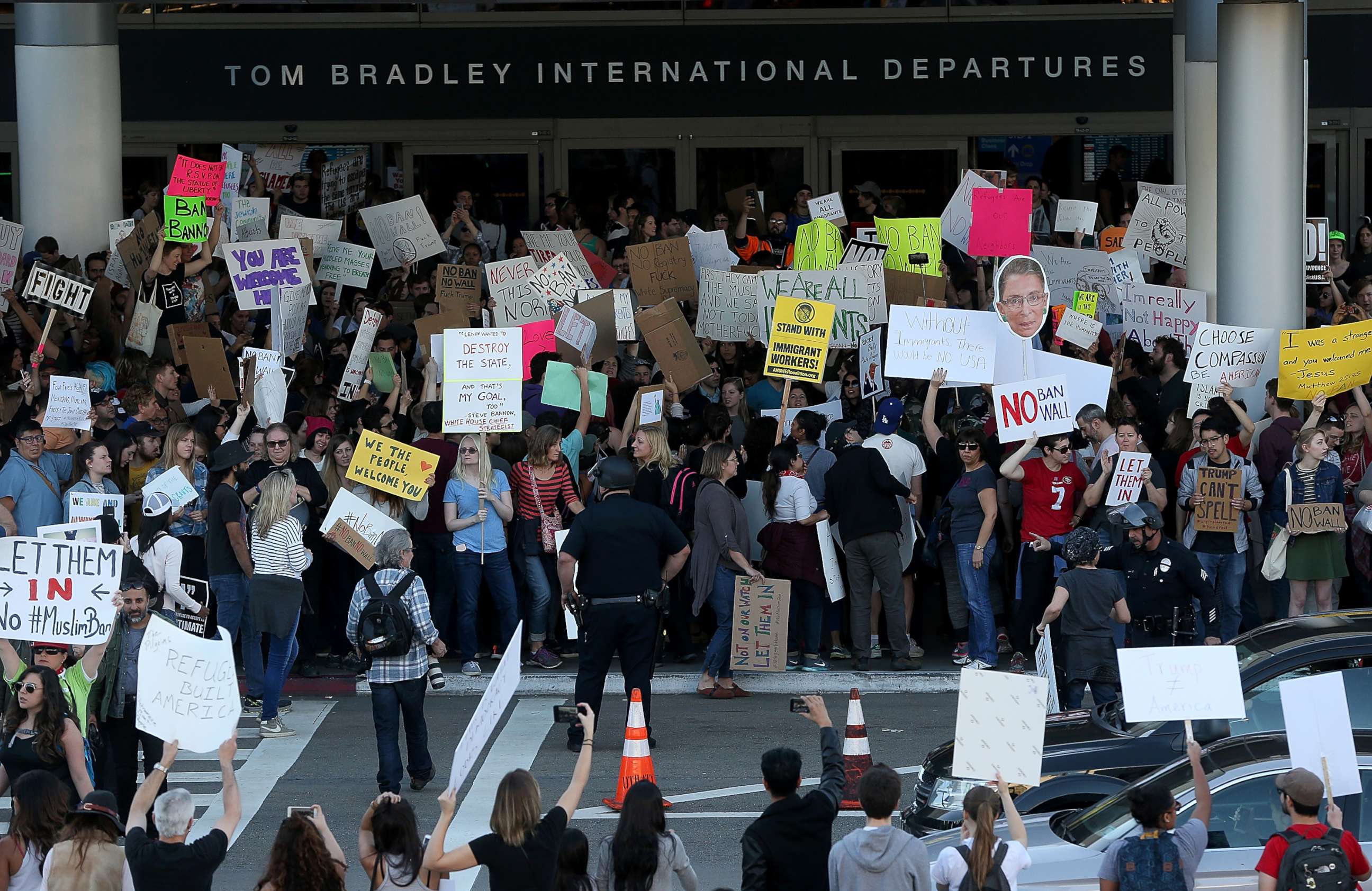
That refugee ban -- which sparked massive protests -- was tied up in the courts before the Supreme Court ruled last June it could proceed. After 120 days, it expired, but Trump signed a new executive order in October that banned refugees from 11 countries except on a case-by-case basis.
Those 11 banned countries were Egypt, Iran, Iraq, Libya, Mali, North Korea, Somalia, South Sudan, Sudan, Syria and Yemen -- a group that together made up nearly half of all refugees admitted to the U.S. in FY 2017, according to data collected by ABC News.
At the end of January, the Department of Homeland Security, which processes refugees, announced the U.S. was resuming all refugee admissions, while at the same time implementing new security vetting procedures for the 11 "high-risk" countries.
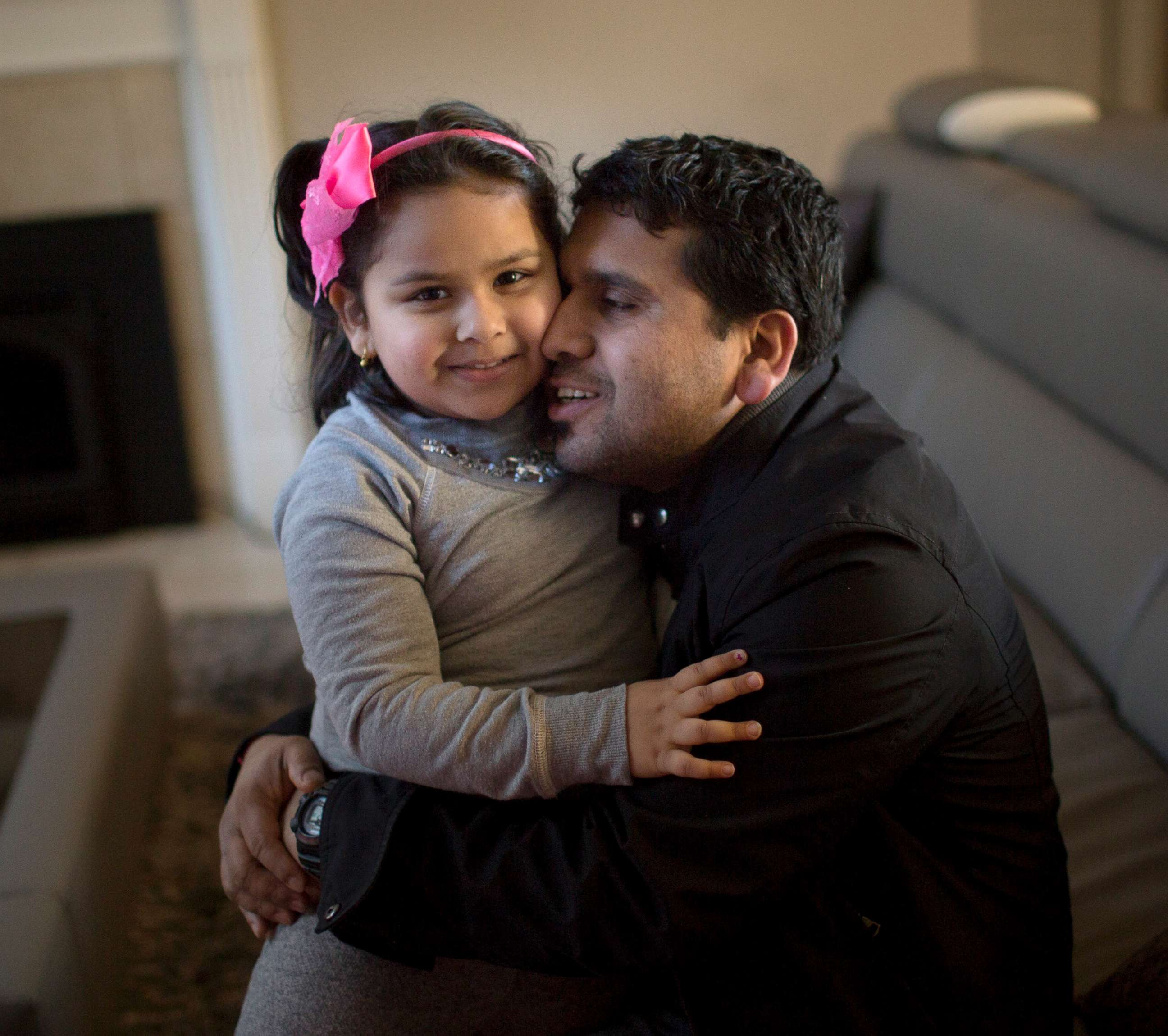
The State Department spokesperson cited those new procedures as the reason for lower numbers.
"Processing time may be slower as we implement additional security vetting procedures," they said in their statement. "The timeframe for each refugee’s case is different."
All the changes have also forced some refugee resettlement agencies to close more than 20 offices across the U.S., according to Reuters.
Sunday, April 1 will be the official six-month mark, but the State Department updates total refugee admission numbers every Friday, making today's release closest to a six-month total.
As a candidate and in office, Trump has demonized refugees, often referencing the song "The Snake" by soul singer Al Wilson, which tells the story of a woman taking in an injured snake and caring for it, only to be eaten by it once it regained its strength; in his retelling, Trump has said refugees are like the snake.

Limiting refugee admissions is one of the many ways his administration has transformed immigration, most often by reversing executive actions of previous presidents, from ending Temporary Protected Status for El Salvador, Haiti, and others; to ending special refugee programs like for Central American minors and Iranian Christians and other religious minorities; and ending the Deferred Action for Childhood Arrivals, or DACA, policy for undocumented immigrants brought to the U.S. as minors.
The policies have won praised from immigration hardliners as a return to law and order, but incited outrage from immigrant and refugee advocates who call them cruel and inhumane.
"The current refugee policies punish the most vulnerable: survivors of torture, people with medical emergencies, and children desperately trying to reunite with their families," said Betsy Fisher, the policy director of the International Refugee Assistance Project, a legal advocacy group for refugees that has been part of the litigation against the Trump administration.
This year's low numbers show that "the U.S. is abdicating its humanitarian leadership at a time when the need is greater than ever... [and] that the Trump administration continues to try to actively ban Muslims from entering the country, as refugees from Syria, Iraq, and other Muslim-majority countries are particularly affected," Fisher added in a statement to ABC News.
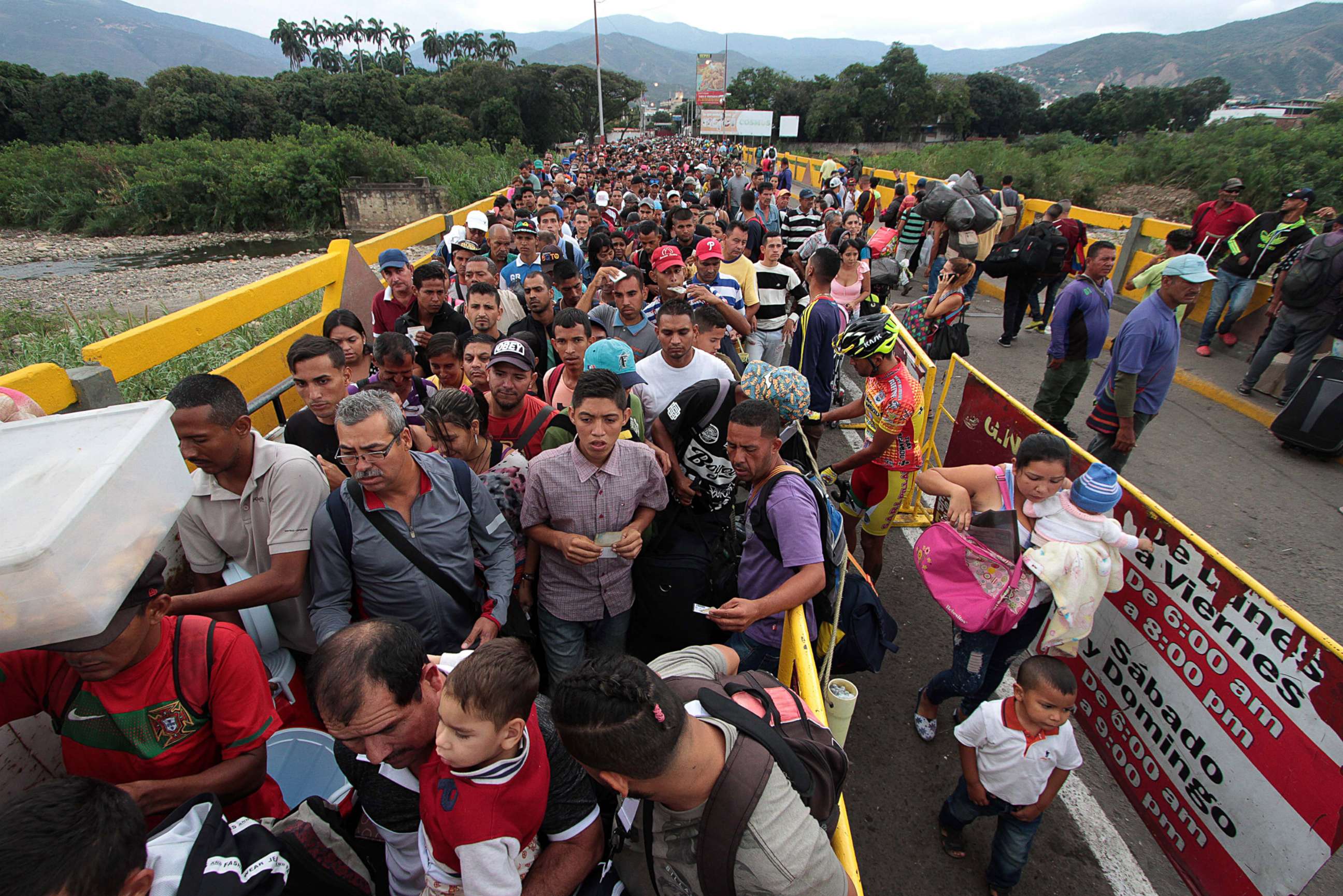
To some critics, not accepting refugees also threatens U.S. national security, leaving allies like Jordan and Turkey to deal with the refugee crisis. There are more than 3 million Syrian refugees in Turkey and 1 million in Lebanon, while 600,000 Venezuelan refugees have poured into neighboring Colombia, a critical U.S. ally, and 700,000 Rohingya refugees have fled ethnic cleansing in Myanmar for neighboring Bangladesh.
"The sharp decline in resettlement leaves U.S. allies in the lurch, threatens the stability of front-line refugee hosting states, and signals to U.S. friends and foes that the United States has retreated from efforts to address the world’s greatest challenges," said Eleanor Acer, the director of the "Refugee Protection" program at Human Rights First, a nonpartisan nonprofit advocating for human rights in U.S. foreign policy.
"The U.S. abdication of leadership on resettlement doesn’t put America first, it actually sabotages America’s interests globally," Acer said in a statement.
Among the refugees admitted so far in FY 2018, over one-third of them are from Africa, with 26% from the Middle East, North Africa, and South Asia. East Asians comprised 1,809, there were 1,738 Europeans, and only 302 were from Latin America and the Caribbean.
